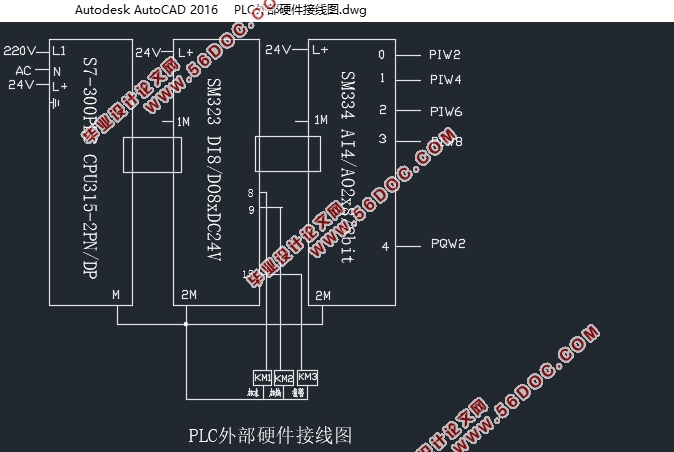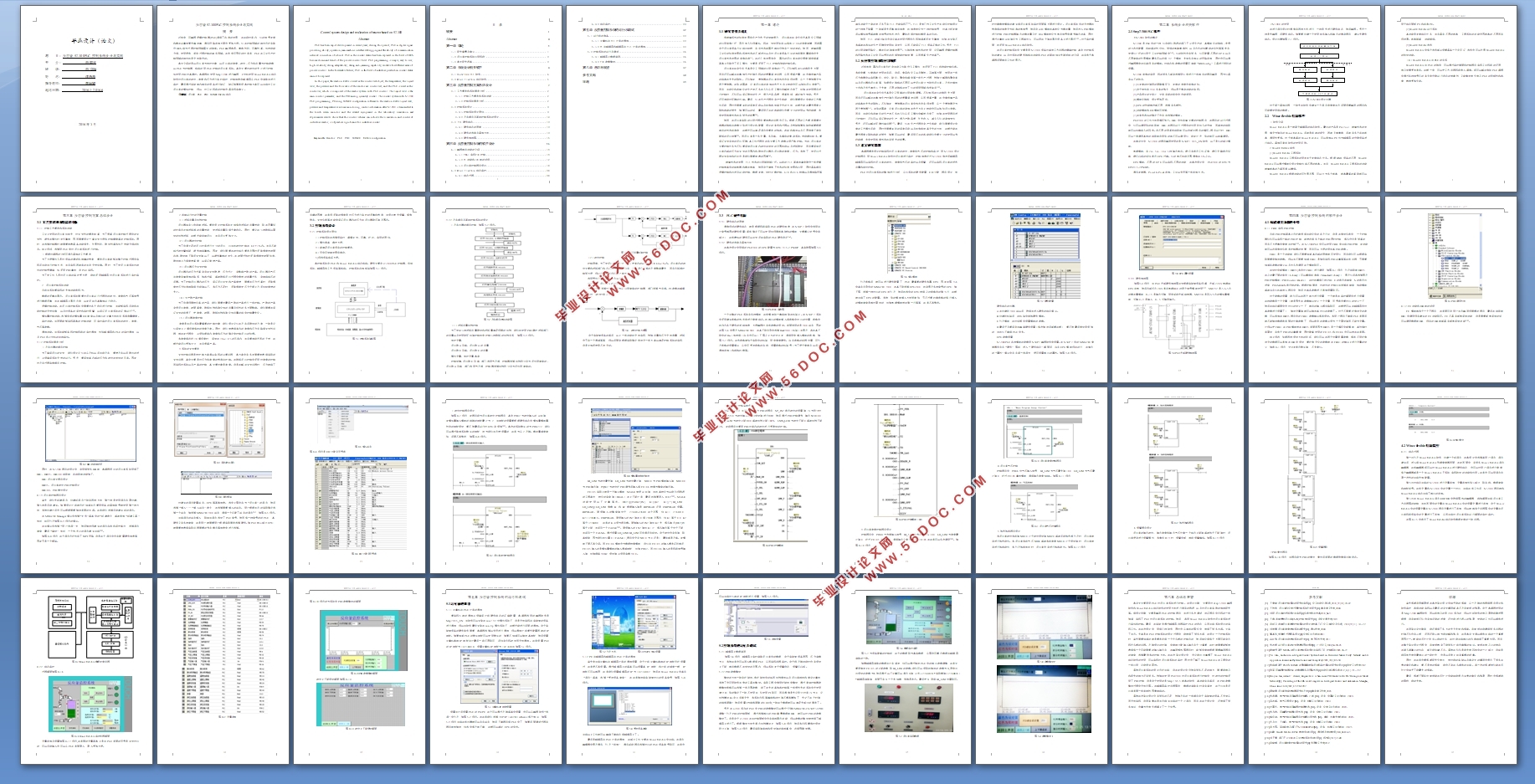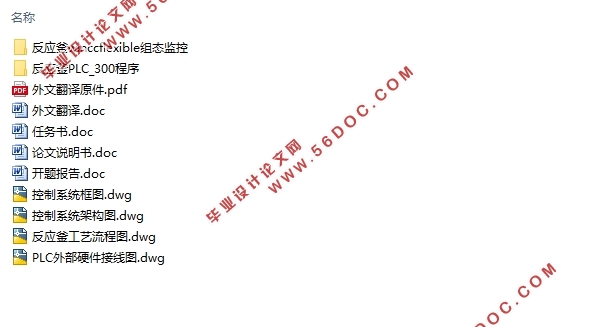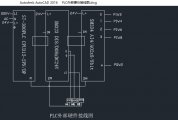反应釜S7-300PLC控制系统设计(附PLC程序,接线图)(任务书,开题报告,外文翻译,论文说明书14000字,CAD图4张,PLC程序)
摘 要
近年来,可编程逻辑控制器(PLC)得到了迅速的发展,在这段时间内,它的信号处理和数字运算效果大幅改善,通讯网络连接方面也更加方便。它在控制领域的地位已经有取代DCS成为过程控制领域霸主的趋势。PLC编程容易、兼容性好、可靠性高、抗扰动能力强、使用便利,适合过程控制的诸多领域。在未来可预见的时间里,PLC在工业生产控制领域的地位将是无法取代的。
本文介绍的是以反应釜为被控对象,以反应釜的温度、液位、压力和流量为控制参数,以PLC为控制器,构成的用PLC控制的反应釜系统。其中主要对液位的大小进行控制,拟使用PID对其调控。本课题将使用Step7-300进行编程,上位机使用Wincc flexible组态软件对反应釜的液位、温度和压力进行实时监控,控制信息由触摸屏从PLC中读取并进行监控,最后通过实验室内相关的设备进行验证,验证结果表明本控制方案可以完成对工业反应釜的模拟控制,所以,对工业现场的控制也具有现实意义。
关键词:反应釜 PLC PID WINCC flexible组态
Control system design and realization of reactor based on S7-300
Abstract
PLC has been rapid development in recent years, during this period, PLC in digital signal processing ability, operation, man-machine interface debugging and the ability of communication network connection of a boost. PLC in the control status has been replaced in the field of DCS become dominant trend of the process control field. PLC programming is simple, easy to use, high reliability, strong adaptability, strong anti-jamming capability, suitable for different areas of process control. In the foreseeable future, PLC in the field of industrial production control status cannot be replaced.
In this paper, the reaction kettle is used as the controlled object, the temperature, the liquid level, the pressure and the flow rate of the reactor are controlled, and the PLC is used as the controller, which is composed of the reactor system with PLC control. The liquid level is the main control parameter, and the PID analog quantity control. The control system with S7-300 PLC programming, PC using WINCC configuration software to the reaction kettle liquid level, pressure and temperature real-time monitoring, control information after S7-300 is transmitted to the touch screen monitor and the related equipment in the laboratory simulation and experimental results show that this control scheme can achieve the simulation and control of industrial reactor, is of practical significance for industrial control.
Keywords: Reactor PLC PID WINCC flexible configuration



目 录
摘要 I
Abstract II
第一章 绪论 1
1.1 研究背景及意义 1
1.2 反应釜控制系统应用现状 2
1.3 本文研究思路 2
第二章 系统设计相关软件 4
2.1 Step7-300 PLC软件 4
2.2 Wincc flexible组态软件 5
第三章 反应釜控制方案总体设计 7
3.1 工艺要求和系统需求分析 7
3.1.1 控制工艺要求和系统功能 7
3.1.2控制系统需求分析 7
3.2 控制系统设计 9
3.2.1.控制系统设计原则 9
3.2.2开车顺序及基础控制系统的设计 10
3.3 PLC硬件组态 12
3.3.1 硬件组态的原理 12
3.3.2 硬件的选型及具体方法 12
3.3.3 硬件接线图 15
第四章 反应釜控制系统的软件设计 16
4.1 编程相关功能的介绍 16
4.1.1 FB41实现PID控制 16
4.1.2 FC功能和OB块的说明 17
4.1.3反应釜控制程序设计 18
4.2 Wincc flexible组态监控 28
4.2.1 组态过程 28
4.2.2 组态监控 29
第五章 反应釜控制系统的运行和调试 32
5.1运行前的准备 32
5.1.1计算机与PLC之间的通信 32
5.1.2 PC与触摸屏和触摸屏与PLC之间的通信 33
5.2控制系统的运行及调试 34
5.2.1触摸屏上数据读写 34
5.2.2 PID参数整定 34
第六章 总结与展望 37
参考文献 38
|







